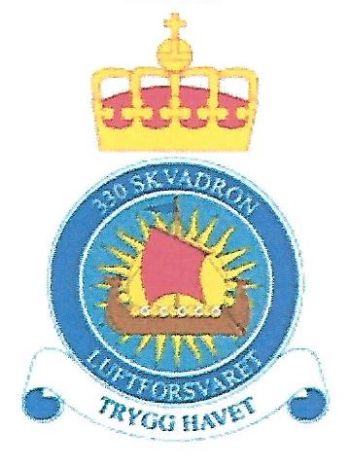330th Squadron, Norwegian Air Force: Difference between revisions
Jump to navigation
Jump to search
Knorrepoes (talk | contribs) m (Text replacement - "|'''English''' ↵| {{blazon wanted}}" to "|'''English''' | blazon wanted") Tags: Mobile edit Mobile web edit |
Knorrepoes (talk | contribs) m (Text replacement - "===Origin/meaning===↵↵The" to "===Origin/meaning=== The") |
||
| Line 17: | Line 17: | ||
===Origin/meaning=== | ===Origin/meaning=== | ||
The Wiking Ship symbolises the Norwegian Connection and the Operations over the Seas. The badge was originaly approved in the Royal Air Force Badge Frame by King George VI on 28 March 1941. After the War approved anew in the Norwegian Badge Frame by King Haakon VII and by King Olav V on 4 April 1979. The Present Badge was approved by the Chief of Defence 3 July 2008. | The Wiking Ship symbolises the Norwegian Connection and the Operations over the Seas. The badge was originaly approved in the Royal Air Force Badge Frame by King George VI on 28 March 1941. After the War approved anew in the Norwegian Badge Frame by King Haakon VII and by King Olav V on 4 April 1979. The Present Badge was approved by the Chief of Defence 3 July 2008. | ||
Revision as of 09:11, 4 August 2023
| Heraldry of the World Verdens heraldikk |
| Norwegian heraldry portal Norsk Heraldik |
|
330TH SQUADRON, NORWEGIAN AIR FORCE
| Norwegian |
I himmelsblått, brunt vikingskip med rødt seil, lagt på gull sol med stråler. |
| English | blazon wanted |
Origin/meaning
The Wiking Ship symbolises the Norwegian Connection and the Operations over the Seas. The badge was originaly approved in the Royal Air Force Badge Frame by King George VI on 28 March 1941. After the War approved anew in the Norwegian Badge Frame by King Haakon VII and by King Olav V on 4 April 1979. The Present Badge was approved by the Chief of Defence 3 July 2008.
Literature: Uniformsbestemmelser for Lutforsvaret BFL 025-1 Del 8 Heraldiske våpen



